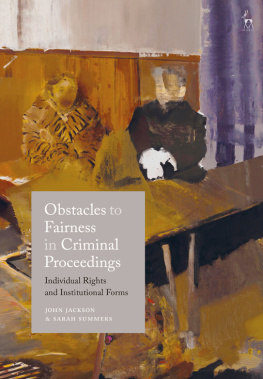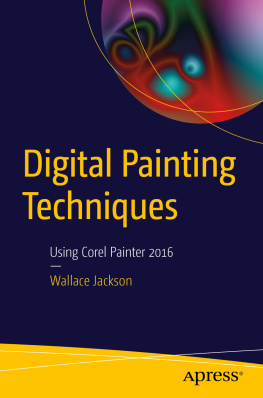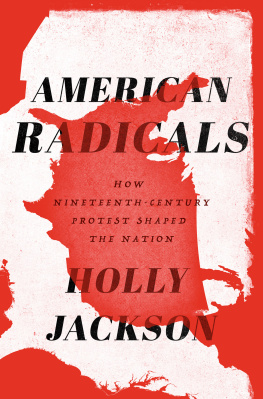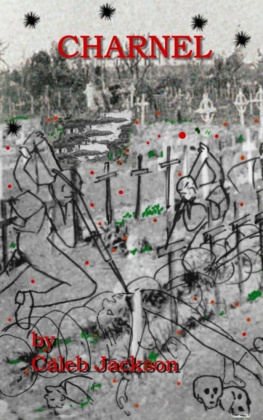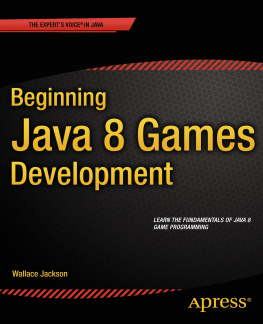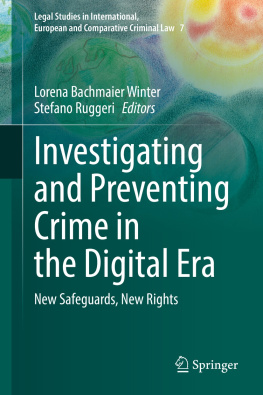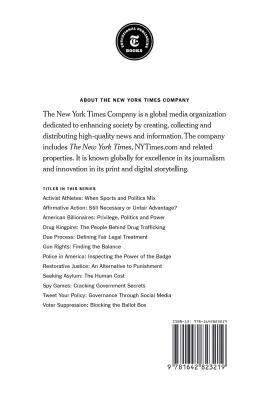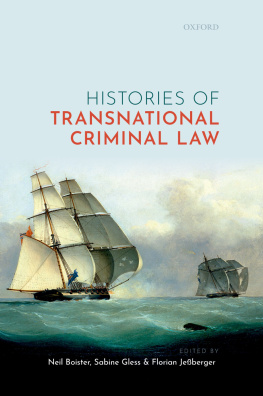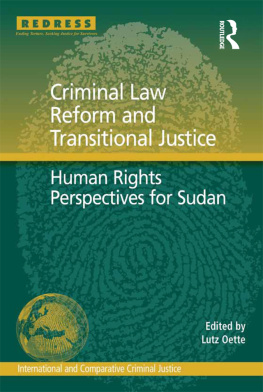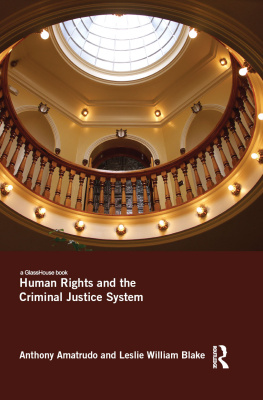Table of Contents

OBSTACLES TO FAIRNESS IN CRIMINAL PROCEEDINGS
This volume considers the way in which the focus on individual rights may constitute an obstacle to ensuring fairness in criminal proceedings.
The increasingly cosmopolitan nature of criminal justice, forcing legal systems with different institutional forms and practices to interact with each other as they attempt to combat crime beyond national borders, has accentuated the need for systems to seek legitimacy beyond their domestic traditions. Fairness, expressed in terms of the right to a fair trial in provisions such as Article 6 of the European Convention on Human Rights, has emerged across Europe as the principal means of guaranteeing the legitimacy of criminal proceedings. The consequence of this is that criminal procedure doctrines are framed overwhelmingly in constitutional termsthe protection of defence rights is necessary to restrict and legitimate the states mandate to prosecute crime. Yet there are various problems with relying solely or predominantly on defence rights as a means of ensuring that proceedings are fair or legitimate and these issues are rarely discussed in the academic literature. In this volume, scholars from the disciplines of law, philosophy and sociology challenge various normative assumptions underpinning our understanding of fairness in criminal proceedings.
Obstacles to Fairness in
Criminal Proceedings
Individual Rights and Institutional Forms
Edited by
John D Jackson and Sarah J Summers

OXFORD AND PORTLAND, OREGON
2018
Hart Publishing
An imprint of Bloomsbury Publishing Plc
Hart Publishing Ltd Kemp House Chawley Park Cumnor Hill Oxford OX2 9PH UK | Bloomsbury Publishing Plc 50 Bedford Square London WC1B 3DP UK |
www.hartpub.co.uk
www.bloomsbury.com
Published in North America (US and Canada) by
Hart Publishing
c/o International Specialized Book Services
920 NE 58th Avenue, Suite 300
Portland, OR 97213-3786
USA
www.isbs.com
HART PUBLISHING, the Hart/Stag logo, BLOOMSBURY and the
Diana logo are trademarks of Bloomsbury Publishing Plc
First published 2018
The editors and contributors severally 2018
The editors and contributors have asserted their right under the Copyright, Designs and Patents
Act 1988 to be identified as Authors of this work.
All rights reserved. No part of this publication may be reproduced or transmitted in any form or by any means,
electronic or mechanical, including photocopying, recording, or any information storage or retrieval
system, without prior permission in writing from the publishers.
While every care has been taken to ensure the accuracy of this work, no responsibility for loss or damage
occasioned to any person acting or refraining from action as a result of any statement in it can be
accepted by the authors, editors or publishers.
All UK Government legislation and other public sector information used in the work is Crown Copyright .
All House of Lords and House of Commons information used in the work is Parliamentary Copyright .
This information is reused under the terms of the Open Government Licence v3.0 (http://www.
nationalarchives.gov.uk/doc/open-government-licence/version/3) except where otherwise stated.
All Eur-lex material used in the work is European Union, http://eur-lex.europa.eu/, 19982018.
British Library Cataloguing-in-Publication Data
A catalogue record for this book is available from the British Library.
ISBN:HB:978-1-78225-835-3
ePDF:978-1-78225-837-7
ePub:978-1-78225-836-0
Library of Congress Cataloging-in-Publication Data
Names: Jackson, John D., 1955- editor. | Summers, Sarah J., editor.
Title: Obstacles to fairness in criminal proceedings : individual rights and institutional forms /
edited by John D. Jackson and Sarah J. Summers.
Description: Oxford [UK] ; Portland, Oregon : Hart Publishing, 2018. | Includes bibliographical
references and index.
Identifiers: LCCN 2017051102 (print) | LCCN 2017051419 (ebook) | ISBN 9781782258360 (Epub) |
ISBN 9781782258353 (hardback : alk. paper)
Subjects: LCSH: Fair trial. | Criminal procedure (International law) | Due process of law. |
Pre-trial procedure. | Evidence, Criminal.
Classification: LCC KZ7364 (ebook) | LCC KZ7364 .O27 2018 (print) | DDC 345/.056dc23
LC record available at https://lccn.loc.gov/2017051102
Typeset by Compuscript Ltd, Shannon
To find out more about our authors and books visit www.hartpublishing.co.uk. Here you will find extracts,
author information, details of forthcoming events and the option to sign up for our newsletters.
The essays in this collection are the result of two workshops held in Zurich in September 2014 and in Nottingham in September 2016. The first workshop was hosted by the Faculty of Law at the University of Zurich and we are grateful to the Swiss National Science Foundation for its generous financial support for the workshop. We would like to thank Lorenz Garland and Aline Scheiwiller in particular for taking care of the administrative arrangements. The second workshop was hosted by the University of Nottingham School of Laws Centre for Criminal Justice Research and funded by the Modern Law Reviews Scholarly Seminar Series. We gratefully acknowledge the School of Law for its administrative support and the Modern Law Review for its financial support. We would like to thank the Centres administrator, Kobie Neita, for her help in the organisational arrangements and for ensuring that the workshop ran so smoothly.
For the first exploratory workshop scholars from a number of different disciplines were asked to challenge various normative assumptions underpinning our understanding of fairness in criminal proceedings. Participants were asked to submit their papers to discussants in advance of the workshop so that there was plenty of scope for discussion of the papers at the workshop. For the second workshop participants were asked to revise their papers to address one of a number of themes that were identified at the exploratory workshop and some participants submitted completely new papers in order to engage with these themes. Once again discussants were appointed to comment on the papers. We would like to thank the discussants to each of the workshops for their intellectual effort which greatly assisted in the development of the ideas and arguments to be found in this collection. The authors of each of the papers submitted to the second workshop were asked to revise their papers into a draft chapter for this collection and each chapter was then subjected to editorial review and further revision. We would like to thank all the authors for engaging so willingly with the themes of the book and for sticking so patiently with the project throughout its development. The collection could never have been brought to fruition without their commitment and dedication.
We would like to thank Kristof Reber, Luca Ranzoni, Elena Biaggini and David Scott for the editorial assistance they gave us before we handed over copy to the publishers and to Egbert Clement for his inspirational design of the cover. Bill Asquith was very enthusiastic about the project from the outset and we would like to thank all at Hart/Bloomsbury for their production and marketing of the book. In addition to Bill, we would like to thank in particular Francesca Sancarlo and our copy editor, Victoria Broom.

